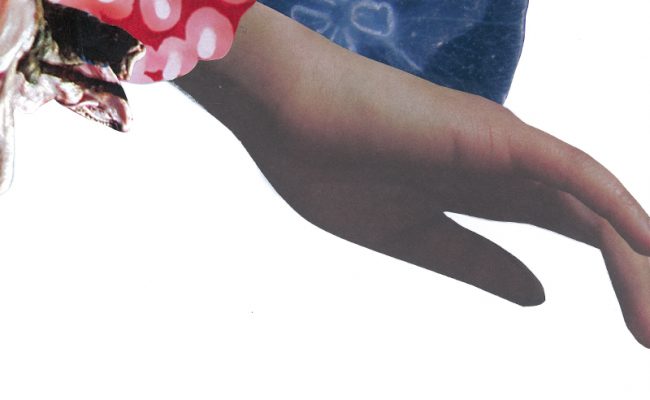are heavy to lug. think
also of the weight of wool
you crushed lichen &
made a potion. There
is bromine & it is a
weakening agent
the animals require care
or Petter Dass &
a sharp wit: a lamb’s head
my large blue chest looms
it blocks out the sun we
scatter oral discs but
there is a species at extinction
bivalves cease to breed
in the northern oceans
‘Swimming Inwards in Northern Norway’s Ocean’
Skyline, climate, badly
Automated notions of colour
Stylised & unrefined
Relinquish a category,
Supplement a movement
Or its transformation
A discovery as death
Vegetable dye
Spin linen
Your bail in granular
Beard lichen
Spruce tree lichen
Boil it briefly
A pot of water at 80 degrees
A madder root
(for Hannah Ryggen)
Read the rest of Overland 240
If you enjoyed this piece, buy the issue
Or subscribe and receive
four brilliant issues for a year




